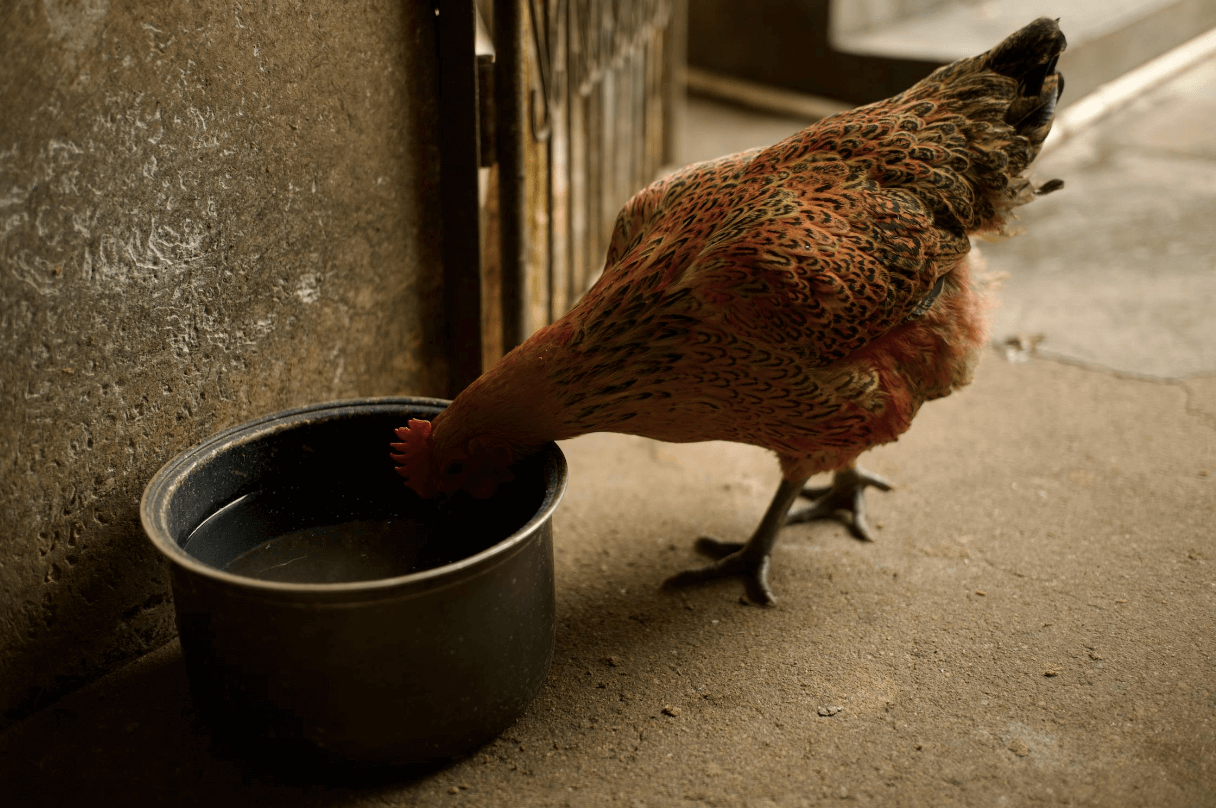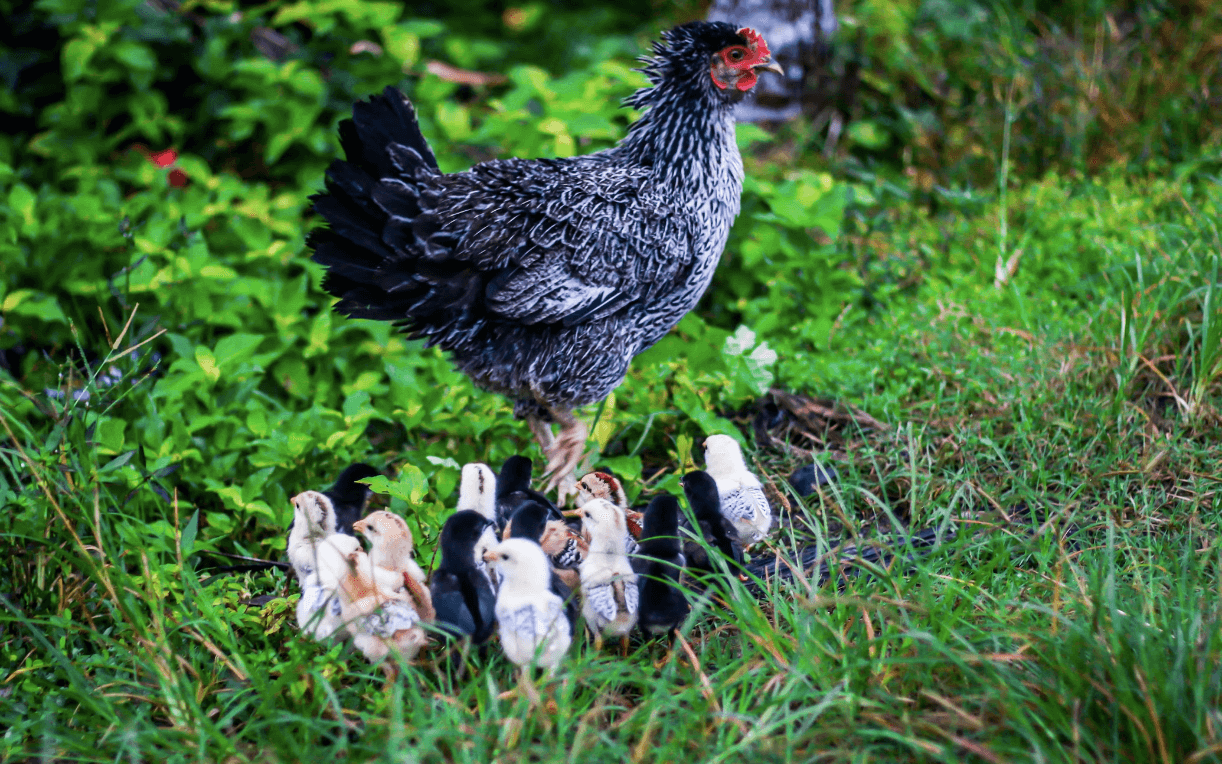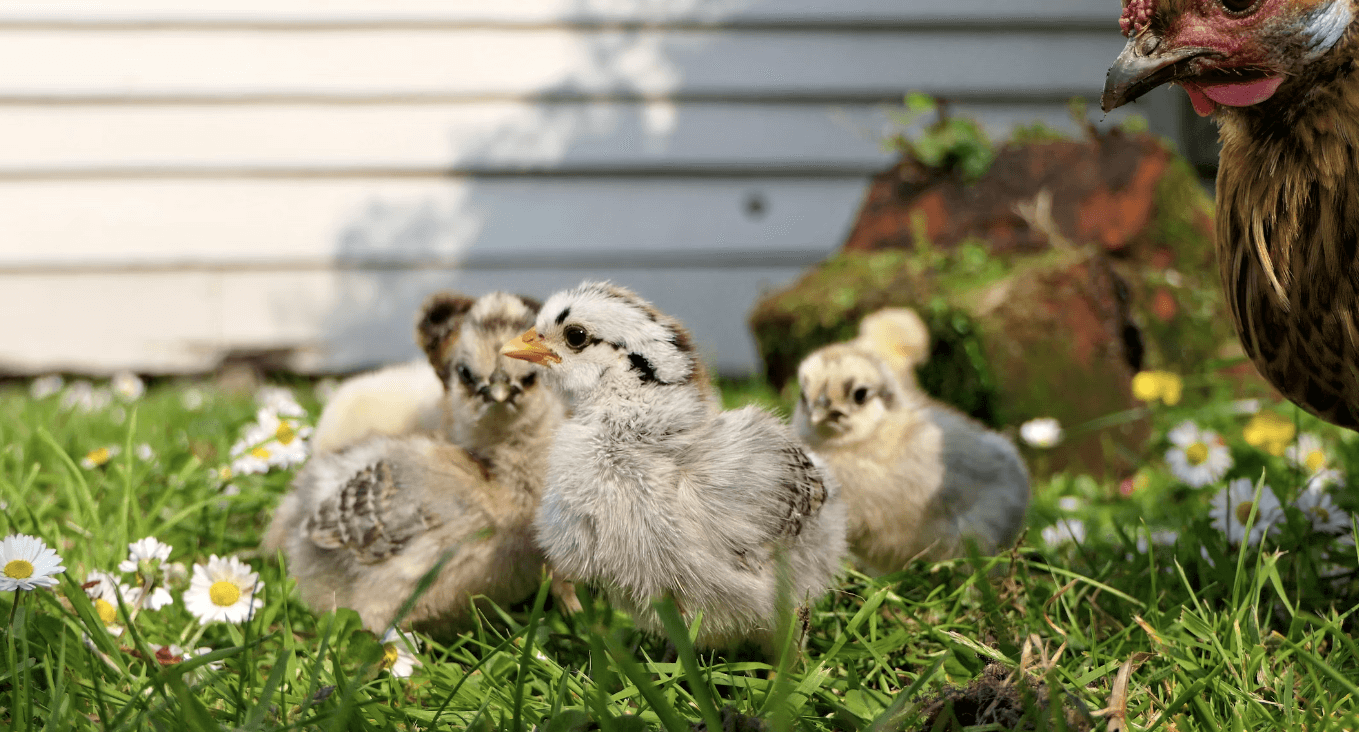Allowing your hens to roam in your backyard ensures they have enough space to exercise, forage for food, and exhibit their natural behaviors. Unfortunately, keeping free-range birds presents a unique set of problems, especially where predators like hawks are concerned.
These raptors are a real worry for chickens. They perch high in the trees where your cluckers won’t notice them before swooping down to strike. With their keen eyesight and sharp talons, hawks often kill their prey upon impact, immobilizing them quickly for consumption.
The worst part is that once a hawk realizes it can pluck a tasty snack from your flock, it’s likely to return for another meal.
Since these birds are protected by federal law, chicken keepers aren’t allowed to harm them, no matter the devastation they may cause. Your only option is to deter these unwanted visitors.
In this article, we’ll provide you with effective tips that prevent hawks from attacking your hens. We’re on a mission to help you ensure the safety and well-being of your birds, allowing them to live without the constant threat of attacks looming overhead.
Provide a Sturdy Coop
The first line of defense against hawks is to ensure your flock has access to a well-constructed chicken coop. It should have a roof and sides that protect your birds from all angles, as raptors hunt from high in the sky.
Ensure your chicken coop is built from strong materials that can withstand the weather as well as potential predators, providing a secure haven for your flock to roost and lay eggs. Make sure everything is well put together and keep an eye open for any holes or weak spots.
Choose one of our beautifully-built coops for the utmost peace of mind over the safety of your hens. Our designs are solid and sturdy, providing shelter for your birds while keeping predators at bay.
Use Visual Deterrents
Hanging reflective, mirror-like objects around your yard is a proven way of spooking aerial predators. The North American Bluebird Society recommends using these items to keep hawks away from their intended targets.
Things like old CDs, aluminum foil strips, or a special shiny tape can scare raptors as the sun hits them and they make bright flashes.
Hawks are visually oriented predators, and these sudden, unpredictable reflections can confuse them and make them nervous to approach the area.
Another option is to use something called scare-eye devices. These diverters are designed to resemble the eyes of larger predators like owls, with intimidating patterns printed on balloons or other reflective materials.
The idea behind scare-eye balloons is to make hawks think another dangerous predator is around, making them hesitate before coming close to your chickens. Some designs are activated by the wind, with the movement even more convincing to hawks.
It’s also possible to deter hawks by using scarecrows. These decoys have been used for centuries to keep birds away from valuable assets like crops and chickens.
Haws associate scarecrows with potential danger, as they give the illusion of a human presence among the flock. As a result, aerial predators that fear humans are kept away.
If you decide to use scarecrows, ensure to change their location as often as possible so the hawks don’t figure out your trick. If you don’t move them, the raptors will get used to them being in the same position and realize they aren’t a threat.
Add a Rooster to Your Flock
While chickens may be ill-equipped to fend off a hawk’s attack, roosters are built to protect their flocks. If you don’t already have a rooster in your backyard, they are a natural way to ensure the safety of your hens.
The males of the species are known as fierce protectors who can be quite aggressive when it comes to keeping their ladies safe.
At the first hint of danger, a rooster will start making noises that tell the girls to hide away. If the birds can get into their coop or hide underneath some dense foliage, the hawk will eventually leave to find easier hunting.
Not every town or homeowners association allows you to keep roosters, so be sure to check your local bylaws and ordinances before adding one to your flock.
Cover Up Feeders
Many hawks target chicken feeders and watering stations when hunting, as they know the birds are especially vulnerable whilst using them. Your hens lower their heads when they eat or drink, letting their guard down against attacks.
Chickens are also usually bunched together around a feeder, which provides raptors with multiple targets that don’t have any means of a fast escape.
To prevent your cluckers from getting taken out while they enjoy their dinner, move your feeders and waterers inside your coop. This provides covered feeding stations that keep your birds safe while they eat and also gives them a place to hide away should a hawk pass overhead.
Add Wild Birdhouses to Your Backyard
(Image source: Pexels)
This method works like an alarm system for your chickens. Placing birdhouses in your backyard where your hens roam attracts small wild birds to the area that will alert your cluckers to any potential danger.
Since wild birds are often hunted by larger birds of prey, they are much more observant than chickens. They usually notice hawks faster and will raise the alarm that a predator is near, telling your flock to watch out and stay close to cover.
Believe it or not, it’s also beneficial to the safety of your chickens if crows have nested around your garden. They make great hawk deterrents, as they aren’t fond of the raptors and usually chase them away if they’ve nested nearby.
Increase the Visibility Around Your Chickens
When hunting chickens, hawks usually perch on trees that are close by, patiently waiting for the right opportunity to swoop down and snatch up their prey. When you have tall bushes and grass around your flock, it makes detecting the raptor difficult.
Consider cutting any overgrown shrubs and grasses in the areas where your flock spends its days. Taking this step reduces the amount of cover that the hawk has, and lowers its chances of attacking your hens without being seen.
You should also place your coop away from tall trees or other places where hawks can watch undetected. These raptors rely on the element of surprise and are much less likely to attack when they can’t easily observe your chickens from above.
Change Up Your Routine
Completing the chores you have around the garden might seem straightforward, but you can add an element of strategy to them too. When it comes to keeping your flock safe from hawks, it’s key to be unpredictable.
Mix up your timing and the order of the tasks you do to prevent any certainty that raptors might rely on to approach your birds when they’re unattended.
Should you stick to a routine, hawks are easily able to anticipate when your cluckers are at their most vulnerable. But by being unpredictable, you keep them guessing. Using this simple tactic can make a big difference in the safety of your flock.
Hawks also usually like to hunt in the early morning and late afternoon. Change the times you allow your chickens out to avoid these periods and your birds might stay safer.
Hawk Deterrence Made Simple
Hawks can be a great threat to your backyard chickens, but you can deter them with our proven methods. Using a combination of these preventative tactics is an even better way to ensure the safety and security of your flock and provide them with the freedom to thrive.
Here’s a quick recap of the approaches you could use to keep hawks away from your chickens:
Contact us if you have any further questions about how to keep your hens safe. We’re real people who are here to help you navigate any hawk concerns you may have, ensuring your chickens can live happy and secure lives.





